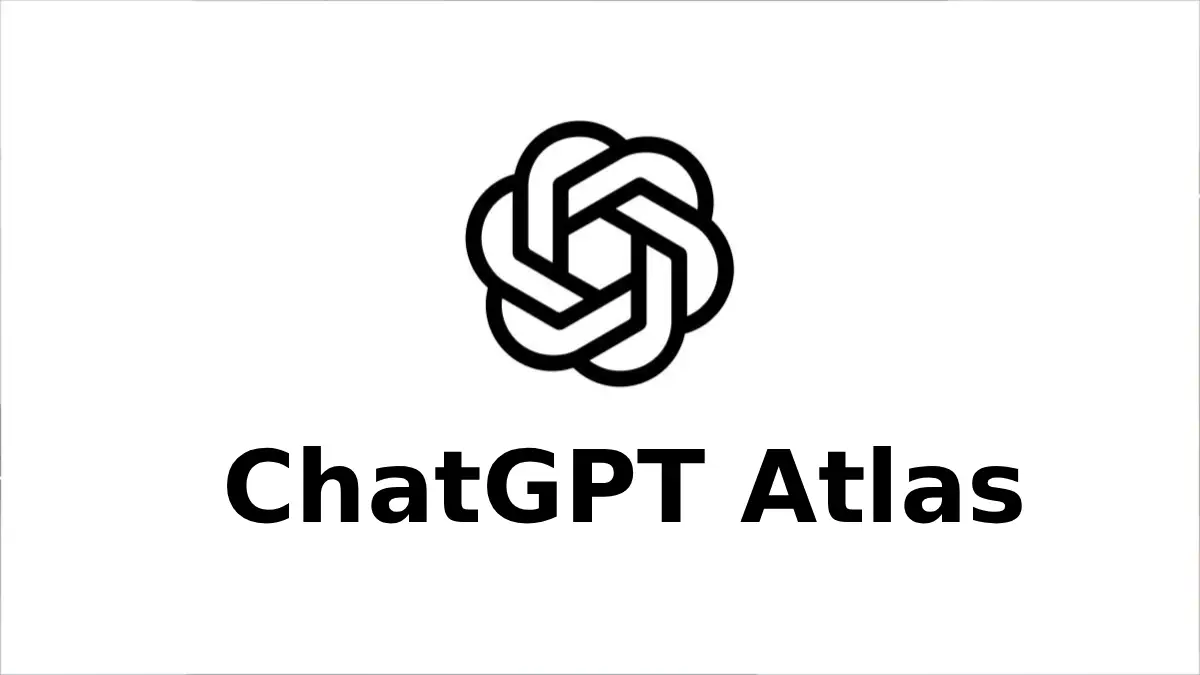Can ChatGPT Atlas redefine how we search, shop, and browse online, and what makes ot so powerful?”

ChatGPT Atlas browser challenges Google Chrome dominance
OpenAI has officially launched ChatGPT Atlas, a next-generation AI-powered web browser designed to rival Google Chrome and reshape how people search, browse, and interact with the internet.
Available first on macOS, Atlas integrates ChatGPT directly into the browsing experience, replacing the traditional address bar with a conversational interface that acts more like a personal assistant than a search tool.
OpenAI CEO Sam Altman described Atlas as being “built around ChatGPT”, reflecting the company’s vision of AI as the foundation of future web navigation.
No Address Bar, No Problem: A Browser Built Around AI Conversation
One of Atlas’s boldest features is its elimination of the standard address bar, replacing it with a ChatGPT-driven command interface. Instead of typing URLs or search terms, users simply ask the browser to find, analyze, or complete tasks.
From researching a topic to summarizing an article or comparing products, ChatGPT Atlas allows users to perform actions conversationally, without ever leaving the chat interface.
The move positions Atlas as a direct challenge to traditional search, where Chrome still dominates with over 70% global market share.
READ ALSO
Agent Mode: The Browser That Works For You
Perhaps the most revolutionary feature of ChatGPT Atlas is Agent Mode, available exclusively to paid ChatGPT subscribers.
In this mode, the browser doesn’t just provide results, it acts on behalf of the user, automating tasks like:
- Comparing products and creating recommendation summaries
- Booking trips, flights, or accommodations through platforms like Expedia or Booking.com
- Shopping automatically, adding items to a cart (as demonstrated with Instacart)
- Summarizing long documents or datasets directly on the page
This evolution marks a major step toward autonomous web navigation, turning ChatGPT into an intelligent “agent” capable of completing multi-step tasks online without manual clicks.
Integration with E-Commerce and AI Services
OpenAI has partnered with Shopify, Etsy, Expedia, and Booking.com to integrate Atlas into real-world use cases.
Through these collaborations, Atlas can handle everything from trip planning to online shopping, leveraging live browsing data and ChatGPT’s reasoning capabilities to provide personalized suggestions and actions.
This ecosystem approach is part of OpenAI’s strategy to monetize its growing user base of over 800 million weekly active users, as revealed during the company’s DevDay earlier this month.
Smart Summarization and Contextual Assistance
Atlas users can open a ChatGPT sidebar on any web page to instantly:
- Summarize long articles
- Translate or rephrase content
- Extract key facts
- Generate code snippets
- Analyze product specs or data tables
These features allow professionals, researchers, and everyday users to save time and focus on results instead of sifting through cluttered web pages.
According to OpenAI, this context-aware assistance will “make browsing faster, smarter, and more intuitive.”
A New Era of AI Browsing, and Google’s Growing Challenge
The launch of ChatGPT Atlas intensifies the rivalry between OpenAI and Google, especially as Google expands AI-generated responses through its Gemini-powered Chrome.
Analysts say Atlas could disrupt ad-based search models by steering users toward direct answers and automated tasks instead of traditional click-through results.
Tech analyst Gil Luria notes, “Once OpenAI starts selling ads, it could take a significant share of search advertising away from Google.”
For now, Google still dominates, but the emergence of Atlas, alongside AI-first browsers like Perplexity’s Comet and Opera’s Neon, signals a coming shift in how people experience the web.
What’s Next for ChatGPT Atlas
Atlas is currently available globally for macOS users, with Windows, iOS, and Android versions in development.
As AI browsers gain traction, OpenAI’s Atlas could mark a pivotal step in the evolution of AI-driven search and automation, pushing the boundaries of how people find, process, and act on information.
In an industry long ruled by Google, ChatGPT Atlas represents the next frontier , where AI doesn’t just answer questions but gets things done.
FAQs: Everything to Know About ChatGPT Atlas
Q1: What is ChatGPT Atlas?
ChatGPT Atlas is OpenAI’s new AI-powered web browser that integrates ChatGPT directly into the browsing experience, enabling users to search, summarize, and complete tasks conversationally.
Q2: How does ChatGPT Atlas differ from Google Chrome?
Unlike Chrome, Atlas removes the address bar and uses ChatGPT as its interface, allowing users to navigate and perform actions using natural language rather than typing search terms or URLs.
Q3: What is Agent Mode in ChatGPT Atlas?
Agent Mode is a premium feature that lets ChatGPT perform tasks automatically, like booking trips, shopping online, or completing research on behalf of the user.
Q4: Which devices support ChatGPT Atlas?
Atlas is available now on macOS, with versions for Windows, iOS, and Android expected soon.
Q5: Can ChatGPT Atlas replace traditional browsers?
For AI-focused users, yes, Atlas provides a faster, automated, and personalized browsing experience, though mainstream adoption may depend on its cross-platform rollout.
Q6: Is ChatGPT Atlas free to use?
Atlas has a free version, but advanced features like Agent Mode are reserved for ChatGPT Plus or Enterprise subscribers.

